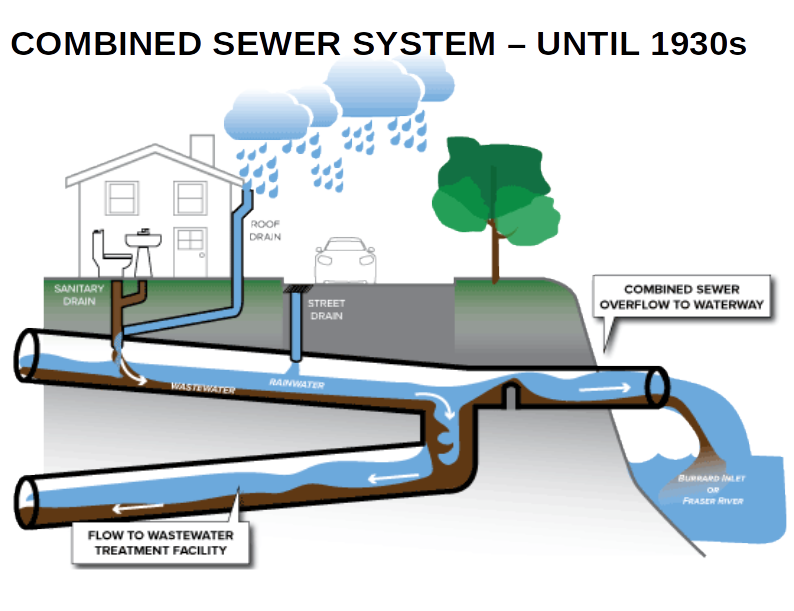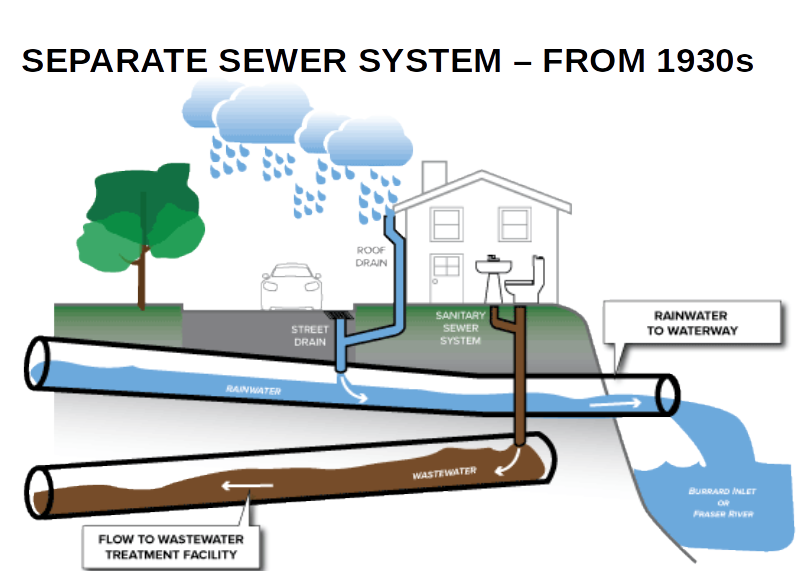|
We are pleased to have Robert Hellawell write a series of blogs about how pollution could enter the River Worth. Robert, aka Urban Pollution Hunter on Facebook, works for the Aire Rivers Trust monitoring pollution on the Aire and it's catchment, so he is well placed to tell us about how rivers get polluted. He starts by explaining how the sewage system works, or doesn't work, and the two types of system used. Finally he will talk about the problem of misconnections, but you might have to wait for part three for that! Sewage pollution of our rivers has been in the headlines in recent months. The concern has been all about untreated, sewage escapes from wastewater treatment plants. However, there can be many other, smaller pollution sources affecting our rivers that often go unnoticed; I am talking about misconnections. Misconnections are one of the main contributors to what is known as diffuse pollution, particularly in built up, urban environments. Diffuse pollution is that which has no obvious single source. The increasing effects of numerous, misconnections can have a detrimental impact on urban rivers whilst remaining unnoticed. There has always been pollution of our rivers. Many settlements have grown up around a river or beck. Clean, fresh water is vital for life, but flowing water also provides a readymade way of disposing of our waste. Ever since humans have settled by rivers, we have polluted them! It was the Victorians who built our first sewers. To understand misconnections, first we must understand how our sewers work. We have two types of sewer systems in the UK. Sewers built before the 1930s are known as combined sewers. Sewers built after the 19030s are known as separate sewers. Each has their own different pollution problems. Combined sewers take the foul sewage from our toilets, sinks and baths combined with rainwater run-off from roofs and roads and convey the whole lot to the wastewater treatment works (WWTW) where all the effluent is treated and cleaned before being returned to the river. In industrial areas, this may also include wastewater from industrial processes. However, in times of heavy rain, the combined sewer can become overloaded. In this case, our Victorian ancestors thoughtfully included a safety valve to stop sewage bubbling up in our streets and homes.
Separate Sewers were later introduced to try and minimise the frequency of CSO spills into the river. In this case, the foul sewage is separated from the rainwater. The rainwater from rooves and roads is directed via a separate, surface water sewer directly into the nearest watercourse without any form of treatment. The foul sewage from toilets, sinks, baths etc. Is conveyed by a separate, foul sewer to the existing, combined sewer where it passes to the WWTW, as before, for treatment. In part two we will look in more detail at how the different sewage systems can cause pollution issues in our rivers and what constitutes a misconnection.
0 Comments
Leave a Reply. |
Archives
November 2025
Categories |




 RSS Feed
RSS Feed